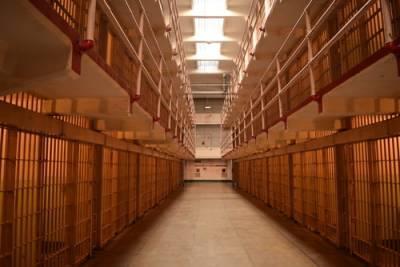Does the Federal Bureau of Prisons Earn Profits From Prisoners’ Money?
 The prison industry has come under fire in recent years due to its focus on earning profits while failing to protect the rights of prisoners. While this has been an issue addressed by criminal justice activists in relation to private prisons, many have also raised concerns about the practices followed by government agencies. A recent report found that the Federal Bureau of Prisons (BOP) has focused on using funds in accounts owned by prisoners to earn profits for the agency rather than paying restitution to victims or ensuring that prisoners meet other financial obligations, such as child support.
The prison industry has come under fire in recent years due to its focus on earning profits while failing to protect the rights of prisoners. While this has been an issue addressed by criminal justice activists in relation to private prisons, many have also raised concerns about the practices followed by government agencies. A recent report found that the Federal Bureau of Prisons (BOP) has focused on using funds in accounts owned by prisoners to earn profits for the agency rather than paying restitution to victims or ensuring that prisoners meet other financial obligations, such as child support.
Prisoner Funds Managed by the BOP
The Federal Bureau of Prisons manages two separate pools of money owned by prisoners. The first is known as the deposit fund, and it may consist of any funds kept in accounts for prisoners, who may not have access to traditional bank accounts. The other pool consists of prisoner commissary accounts, and it is known as the Trust Fund. These accounts are used by prisoners to make purchases of food or other items while behind bars, as well as services such as phone calls or internet access.
Money in the deposit fund is held in trust, and the BOP does not earn an income from these funds. However, money in the Trust Fund may earn interest for the BOP. The commissary purchases made using these funds are also a significant source of income for the BOP, and the agency generates around $80 million per year, which is used to pay salaries and benefits for BOP personnel. Even though prisoners are limited to spending around $400 per month through commissary funds, many keep thousands of dollars in their accounts.
Because the Trust Fund is one of the BOP's primary sources of income, it has fought to keep these funds from being made available to pay court-ordered restitution or other payments that are required from prisoners. In fact, the BOP's policies have limited the amount paid for victim restitution from prisoners' accounts to $25 every three months. While the Justice Department is currently looking to make adjustments to these policies, BOP officials have stated that no more than 25 percent of prisoners' accounts should be made available to pay court judgments, since this would reduce the income that could be earned by the BOP from the Trust Fund.
Contact Our Hartford Criminal Defense Lawyer
These reports demonstrate that in many cases, the justice system is focused not on protecting the rights of prisoners or victims, but it is instead a source of profit for officials and other parties. People who have been charged with crimes can easily become caught up in this system, and they will often struggle to defend themselves, protect their rights, and receive fair treatment. At Woolf & Ross Law Firm, LLC, we are dedicated to protecting the rights of those who are facing criminal charges, and we also provide representation for prisoners who wish to seek clemency through pardons, request sentence modifications, or file appeals. Contact our Connecticut criminal defense attorney at 860-290-8690 to set up a free consultation and learn how we can help you.
Source:
https://www.washingtonpost.com/national-security/2022/08/04/federal-prisons-money-victims/






